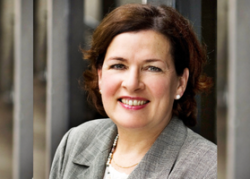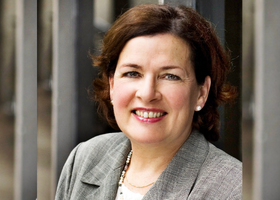20 Questions with Bartha Knoppers

Bartha Knoppers, O.C, O.Q, PhD
Professor, Centre of Genomics and Policy, McGill University
20 Questions with Bartha Knoppers
1. Where were you born? Where did you grow up?
I was born in Hilversum , which is just outside of Amsterdam, in the Netherlands. I was the fourth of six children. My family and I actually came over to North America on one of those big boats as immigrants in 1955. Even though I was a child, I remember the boat, because I had my birthday on the boat. Dutch people do big things for birthdays, and I remember the size of the cake – it seemed so big, but then I as so small!
I remember the boat and I remember landing in New York. We had some family there and then we all flew to Edmonton, Alberta. My father was a Minister and he had been called by the church to be a minister in Edmonton. We lived on the outskirts of Edmonton in an area called Beverly. Some of the roads were not yet paved and the sidewalks were still missing. But the people had built the church there themselves as well as a school and the parsonage to go along with it. The area we lived in had many immigrants from all over the Netherlands, as well as people from Ukraine, Germany, Ireland and many other countries.
2. Where did you go to school?
After high school I went to Calvin College in the United States. I got into a bit of trouble there, protesting the Vietnam War. I was into theatre and literature – I had no interest in law at that time. I eventually ran out of money, even though I was taking on part time jobs, like waitressing and learned more about human nature in that job. I ended up returning to Canada and finished my BA at McMaster University in Hamilton, Ontario. I then went back to Edmonton and did my Master’s at the University of Alberta, in Comparative Literature. I started working on my doctorate, focusing on Caribbean and Quebec poetry. I was looking at how colonization affected how different cultures expressed themselves over time as they went from being colonized to becoming independent and created their authentic literature.
Read the full interview here.
Published July 2021.

